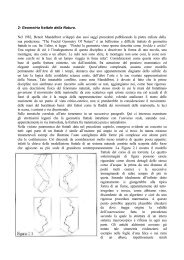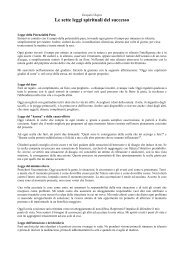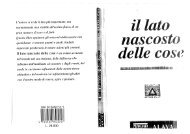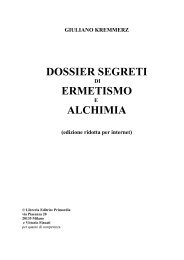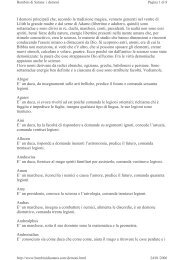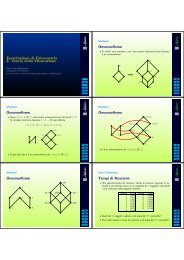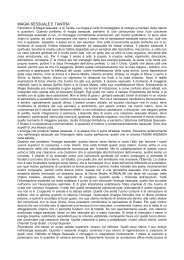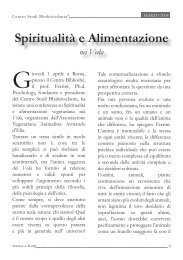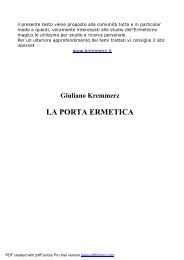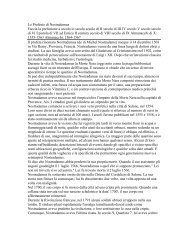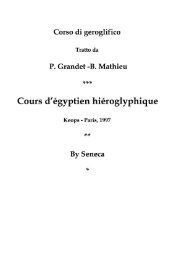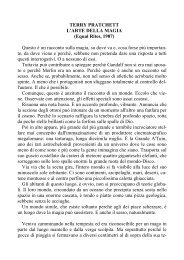188 ~ TALIBANBy running both Afghan policy and operations, the ISI had no roomfor critical reappraisals, accommodating dissent from the status quo, northe imagination or flexibility to adapt to changing situations and theever-evolving geo-political environment. The ISI became a victim of itsown rigidity and inflexibility, even as its power to actually control theTaliban dwindled. The agency's operatives in Afghanistan were all Pashtunofficers, while many were also motivated by strong Islamic fundamentalistleanings. Working closely with Hikmetyar and later the Taliban, thisPashtun cadre developed its own agenda, aimed at furthering Pashtunpower and radical Islam in Afghanistan at the expense of the ethnicminorities and moderate Islam.In the words of one retired ISI officer, 'these officers became moreTaliban than the Taliban.' Consequently their analysis of the anti-Taliban alliance and pipeline politics became deeply flawed, riddled withrigidity, cliches and false assumptions which were driven more by theirstrong Islamic ideological assumptions than by objective facts. But by nowthe ISI was too powerful for the government of the day to question andtoo intrusive for any army chief of staff to clean up.When the Taliban emerged the ISI was initially sceptical about theirchances. It was a period when the ISI was in retreat, with the failure ofHikmetyar to capture Kabul and a shortage of funds. The ISI retreat gavethe Bhutto government the opportunity to devise their own support forthe Taliban. 6 During 1995 the ISI continued to debate the issue of supportfor the Taliban. The debate centred around the Pashtun-Islamic fieldofficers inside Afghanistan, who advocated greater support for the Talibanand those officers involved in long-term strategic planning, who wishedto keep Pakistan's support to a minimum so as not to worsen relationswith Central Asia and Iran. By the summer of 1995, the Pashtun networkin the army and the ISI determined to back the Taliban, especially asPresident Burhanuddin Rabbani sought support from Pakistan's rivals -Russia, Iran and India. 7But by now the ISI faced all the other Pakistani lobbies which theTaliban were plugged into, from radical mullahs to drug barons. The fiercecompetition between the ISI, the government and these lobbies only furtherfragmented Islamabad's decision-making process on Afghanistan.Pakistan's Foreign Ministry was so weakened by this confusion that itbecame virtually irrelevant to Afghan policy and unable to counter theworsening diplomatic environment as every neighbour - Russia, Iran, theCentral Asian states - accused Islamabad of destabilizing the region.Efforts to defuse the criticism such as secret trips to Moscow, Tehran,Tashkent and Ashkhabad by successive ISI chiefs proved a failure.As international criticism increased, the newly elected Nawaz Sharifgovernment and the ISI became more adamant in backing the Taliban.MASTER OR VICTIM: PAKISTAN'S AFGHAN WAR — 189In May 1997 when the Taliban tried to capture Mazar, the ISI calculatedthat by recognizing the Taliban government, it would force hostile neighboursto deal with the Taliban and need Islamabad to improve their ownrelationships with the Taliban. It was a high stakes gamble that badlymisfired when Pakistan prematurely recognized the Taliban, who werethen driven out of Mazar. 8Pakistan reacted by lashing out at its critics including the UN whichwas now openly critical of all external support for the Afghan factions.Pakistan accused UN Secretary General Kofi Annan of being partisan.'The UN has gradually marginalized itself in Afghanistan and lost credibilityas an impartial mediator,' said Ahmad Kamal, Pakistan's Ambassadorto the UN in January 1998. Later Kamal told a conference of Pakistanienvoys in Islamabad that it was not Pakistan which was isolated inAfghanistan, but that the rest of the world was isolated from Pakistan andthey would have to come round to accepting Pakistan's position on theTaliban. 9As Pakistan advocated the Taliban's policies in the teeth of widespreadinternational criticism, the government lost sight of how much the countrywas losing. The smuggling trade to and from Afghanistan became themost devastating manifestation of these losses. This trade, which nowextends into Central Asia, Iran and the Persian Gulf represents a cripplingloss of revenue for all these countries but particularly Pakistan, wherelocal industry has been decimated by the smuggling of foreign consumergoods. What is euphemistically called the Afghan Transit Trade (ATT)has become the biggest smuggling racket in the world and has enmeshedthe Taliban with Pakistani smugglers, transporters, drug barons, bureaucrats,politicans and police and army officers. This trade became the mainsource of official income for the Taliban, even as it undermined the economiesof neighbouring states.The border post between Chaman in Baluchistan province and SpinBaldak in Afghanistan is a prime location for watching the racket at work.On a good day, some 300 trucks pass through. Truck drivers, Pakistanicustoms officials and Taliban mix in a casual, friendly way guzzling downendless cups of tea, as long lines of trucks wait to cross. Everybody seemsto know everybody else as drivers tell stories which would make the WorldTrade Organisation's hair stand on end. Many of the huge Mercedes andBedford trucks are stolen and have false number plates. The goods theycarry have no invoices. The drivers may cross up to six internationalfrontiers on false driving licenses and without route permits or passports.The consignments range from Japanese camcorders to English underwearand Earl Grey tea, Chinese silk to American computer parts, Afghanheroin to Pakistani wheat and sugar, East European kalashnikovs to Iranianpetroleum - and nobody pays customs duties or sales tax.
190 ~ TALIBANThis Wild West of free trade expanded due to the civil war inAfghanistan, the drugs business and the collapse and corruption of Pakistani,Iranian and Central Asian state institutions along their borders withAfghanistan. It coincided with a hunger for consumer goods throughoutthe region. Pakistani and Afghan, transport and drugs mafias merged tofuel this need. 'It's completely out of control,' an official of Pakistan'sCentral Board of Revenue told me as early as 1995. 'The Taliban arefunded by transporters to open the roads for smuggling and this mafia isnow making and breaking governments in Afghanistan and in Pakistan.Pakistan will face a 30'per-cent shortfall in revenues this year, because ofcustoms duties lost to the ATT,' he said. 10Trade has always been critical to the Islamic heartland. The Silk Routewhich linked China to Europe in the Middle Ages passed through CentralAsia and Afghanistan and was run by the same tribesmen and nomadswho are the truck-drivers of today. The Silk Route influenced Europealmost as much as the Arab conquests, for these caravans transported notjust luxury goods, but ideas, religion, new weapons and scientific discoveries.A camel caravan might consist of five or six thousands camels, 'itstotal capacity equalling that of a very large merchant sailing ship. A caravantravelled like an army, with a leader, a general staff, strict rules,compulsory staging posts, and routine precautions against maraudingnomads,' wrote French historian Femand Braudel. 11 Little seems to havechanged in nearly 2,000 years. Today's smugglers operate with a similarmilitary type infrastructure even though trucks have replaced camels.In 1950, under international agreements, Pakistan gave land-lockedAfghanistan permission to import duty-free goods through the port ofKarachi according to an ATT agreement. Truckers would drive theirsealed containers from Karachi, cross into Afghanistan, sell some goodsin Kabul and then turn around to resell the rest in Pakistani markets. Itwas a flourishing but limited business giving Pakistanis access to cheap,duty-free foreign consumer goods, particularly Japanese electronics. TheATT expanded in the 1980s, servicing Afghanistan's communistcontrolledcities. The fall of Kabul in 1992 coincided with new marketsopening up in Central Asia and the need for foodstuffs, fuel and buildingmaterials as Afghan refugees returned home - a potential bonanza for thetransport mafias.However, the transporters were frustrated with the civil war and thewarlords who taxed their trucks dozens of times along a single route.Although the Peshawar-based transport mafia were trading between Pakistan,northern Afghanistan and Uzbekistan, despite the continuing wararound Kabul, the Quetta-based mafia were at a loss with the rapacious,Kandahar warlords who had set up dozens of toll chains along the highwayfrom Pakistan. The Quetta-based transport mafia were keen to open upMASTER OR VICTIM: PAKISTAN'S AFGHAN WAR 191safe routes to Iran and Turkmenistan, just as the Bhutto government wereadvocating a similar policy.Taliban leaders were well connected to the Quetta mafia, who werethe first to provide financial support to the Taliban movement. Initially,the Quetta mafia gave the Taliban a monthly retainer but as the Talibanexpanded westwards they demanded more funds. In Apil 1995, witnessesI spoke to in Quetta said the Taliban collected 6 million rupees(US$130,000) from transporters in Chaman in a single day and twicethat amount the next day in Quetta as they prepared for their first attackon Herat. These 'donations' were quite apart from the single all-inclusivecustoms duty the Taliban now charged trucks crossing into Afghanistanfrom Pakistan, which became the Taliban's main source of official income.With routes now safe and secure, the volume and area of smugglingexpanded dramatically. From Quetta, truck convoys travelled to Kandahar,then southwards to Iran, westwards to Turkmenistan and to otherCARs, even Russia. Soon the Quetta transport mafia were urging theTaliban to capture Herat in order to take full control of the road toTurkmenistan. 12 Even though the IS1 initially advised the Taliban notto attack Herat, the Quetta mafia had more influence with the Taliban.In 1996, the transporters urged the Taliban to clear the route northby capturing Kabul. After taking the capital, the Taliban levied anaverage of 6000 rupees (US$150) for a truck travelling from Peshawarto Kabul, compared to 30,000-50,000 rupees, which truckers paidbefore. The transport mafia gave Taliban leaders a stake in their businessby encouraging them to buy trucks or arranging for their relativesto do so. And with the drugs mafia now willing to pay a zakat (tax)to transport heroin, the transit trade became even more crucial to theTaliban exchequer.Pakistan was the most damaged victim of this trade. The Central Boardof Revenue (CBR) estimated that Pakistan lost 3.5 billion rupees (US$80million) in customs revenue in the financial year 1992/3,11 billion rupeesin 1993/4, 20 billion rupees during 1994/5 and 30 billion rupees (US$600million) in 1997/8 - a staggering increase every year that reflected theTaliban's expansion. 13 An enormous nexus of corruption emerged in Pakistandue to the ATT. All the Pakistani agencies involved were takingbribes - Customs, Customs Intelligence, CBR, the Frontier Constabularyand the administrators in the tribal belt. Lucrative customs jobs on theAfghan border were 'bought' by applicants who paid bribes to senior bureaucratsto get the posting. These bribes, considered an investment, werethen made up by the newly appointed officials who extracted bribes fromthe ATT.This nexus extended to politicans and cabinet ministers in Baluchistanand the NWFP. The chief ministers and governors of the two provinces
- Page 1 and 2:
YALE NOTA BENE"The broader storyher
- Page 3 and 4:
TalibanMilitant Islam,Oil and Funda
- Page 5 and 6:
Vi ~ CONTENTSChapter 8A Vanished Ge
- Page 7 and 8:
AFGHANISTAN•^ UZBEKISTAN J TAJIKI
- Page 9 and 10:
2 ~ TALIBANaccounts for some 40 per
- Page 11 and 12:
"6 ~ TALIBANgas riches of landlocke
- Page 13 and 14:
10 ~ TALIBANgious mix that was to m
- Page 15 and 16:
Part 1History of theTaliban Movemen
- Page 17 and 18:
18 ~ ISLAM OIL AND THE NEW GREAT GA
- Page 19 and 20:
22 ~ ISLAM OIL AND THE NEW GREAT GA
- Page 21 and 22:
26 ~ ISLAM OIL AND THE NEW GREAT GA
- Page 23 and 24:
30 ~ ISLAM OIL AND THE NEW GREAT GA
- Page 25 and 26:
34 TALIBANKabul- Hikmetyar had alli
- Page 27 and 28:
38 ~ TALIBANrHERAT 1995: GOD'S INVI
- Page 29 and 30:
42 ~ TALIBANdo manage to take Kabul
- Page 31 and 32:
J46 ~ TALIBANgreater weight to UN e
- Page 33 and 34:
50 ~ TALIBANas they hung from steel
- Page 35 and 36:
54 ~ TALIBANthey would help rearm t
- Page 37 and 38:
58 TALIBANGul Mohammed Pahlawan, Gh
- Page 39 and 40:
62 TALIBAN2,500 Taliban, who had re
- Page 41 and 42:
66 TALIBANshould throw all aid agen
- Page 43 and 44:
70 ~ TALIBANyears of battle and hel
- Page 45 and 46:
74 ~ TALIBANThousands of Hazaras we
- Page 47 and 48:
78 TALIBANhas become a plague,' sai
- Page 49 and 50:
NEW STYLE FUNDAMENTALISM OF THE TAL
- Page 51 and 52: 86 TALIBANsity students - Hikmetyar
- Page 53 and 54: 90 TALIBANSharia was heavily influe
- Page 55 and 56: 94 TALIBANinflamed the debate in th
- Page 57 and 58: 98 TALIBANizing factor of Islam, it
- Page 59 and 60: 102 TALIBANadministrations made the
- Page 61 and 62: 106 ~ TAUBANfrom working, but it no
- Page 63 and 64: TALIBANUniversity, she held down a
- Page 65 and 66: 114 TALIBAN A VANISHED GENDER 115Ta
- Page 67 and 68: 118 TALIBANUS$1,300 - a small fortu
- Page 69 and 70: 122 TALIBANper cent of the total Pa
- Page 71 and 72: 126 TALIBANequipment, no electricit
- Page 73 and 74: 130 ~ TALIBANfight with the Mujahed
- Page 75 and 76: 134TALIBANAugust 1996 noted that Bi
- Page 77 and 78: 138 ~ TALIBANwho were using the Kho
- Page 79 and 80: 11DICTATORS AND OILBARONS: THE TALI
- Page 81 and 82: 146 TALIBAN DICTATORS AND OIL BARON
- Page 83 and 84: 150 — TALIBANgrowth of beards and
- Page 85 and 86: 154TALIBAN1998 when international o
- Page 87 and 88: 158 ~ TALIBANaround Afghanistan? Af
- Page 89 and 90: 162 TALIBAN ROMANCING THE TALIBAN 1
- Page 91 and 92: 166 TALIBAN ROMANCING THE TALIBAN 1
- Page 93 and 94: ROMANCING THE TALIBAN 2: 1997-99 17
- Page 95 and 96: 174 — TALIBANnon-Russian pipeline
- Page 97 and 98: 178 — TALIBANROMANCING THE TALIBA
- Page 99 and 100: 182 ~ TALIBANApril 1999. 'The US ha
- Page 101: 186 ~ TALIBANters or the transport
- Page 105 and 106: 194 ~ TALIBANgovernance. Pakistani
- Page 107 and 108: 198 TALIBAN SHIA VERSUS SUNNI: IRAN
- Page 109 and 110: 202 TALIBAN SHIA VERSUS SUNNI: IRAN
- Page 111 and 112: 206 — TALIBANin Afghanistan - to
- Page 113 and 114: 210 — TALIBANand antagonism. The
- Page 115 and 116: 214 ~ TALIBANdrawn since 1996 - a P
- Page 117 and 118: 218 ~ TALIBANated and severely puni
- Page 119 and 120: Origins of Members of the Taliban M
- Page 121 and 122: APPENDIX 3 ~ 227Appendix 3A CHRONOL
- Page 123 and 124: 230 ~ TALIBANgraves near Shebarghan
- Page 125 and 126: 234 ~ TALIBAN8 June. US FBI places
- Page 127 and 128: 238 ~ TALIBAN1995 January16 MarchAp
- Page 129 and 130: 242 ~ TALIBANJune21 August10 Septem
- Page 131 and 132: 246 ~ TALIBANDupree, Nancy Hatch, A
- Page 133 and 134: 250 ~ NOTESChapter 31 Interview wit
- Page 135 and 136: 254 ~ NOTESmuddin, Religious Police
- Page 137 and 138: 258 NOTES13. The Japanese company M
- Page 139 and 140: 262 ~ NOTES28. Waxman, Sharon, 'A c
- Page 141 and 142: Abbas, Mulla Mohammed 22,61,100Abda
- Page 143 and 144: INDEX - 270Hazaras (continued)burea
- Page 145 and 146: INDEX ~ 274nF»r\/FaliViar» milita
- Page 147: INDEX ~ 278Talibans (continued)Sunn




